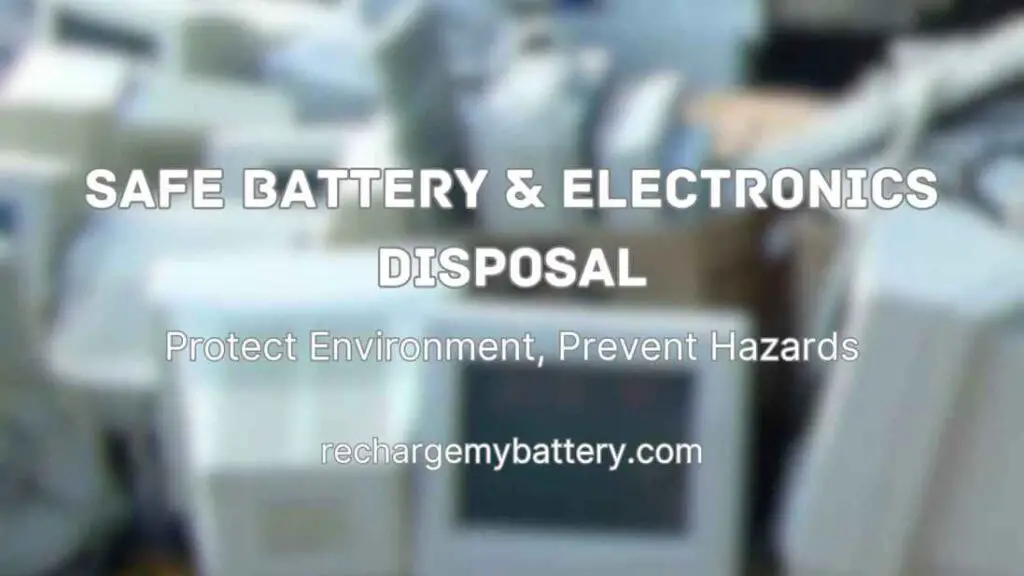While rechargeable batteries have become the norm, have you ever wondered what happens when you attempt to recharge an unchargeable battery? In this article, we will explore the science behind it, the risks involved, and the potential consequences of such an action.
Introduction
Batteries are electrochemical devices that convert stored chemical energy into electrical energy. They consist of one or more electrochemical cells, each containing a positive and negative electrode separated by an electrolyte. Rechargeable batteries are designed to be reused by reversing the chemical reactions that occur during discharge, while unchargeable batteries, also known as primary batteries, are intended for single use only.
Understanding Battery Chemistry
To comprehend what happens when you try to recharge an unchargeable battery, it’s essential to understand the basic chemistry behind batteries. Most batteries operate based on the principle of redox (reduction-oxidation) reactions. During discharge, the chemical reaction occurs, producing an electric current. Recharging a battery involves reversing these reactions.
Rechargeable Batteries vs. Unchargeable Batteries
Rechargeable batteries, such as lithium-ion or nickel-metal hydride (NiMH) batteries, are designed to be recharged multiple times. They contain specific electrode materials that facilitate reversible chemical reactions. On the other hand, unchargeable batteries, like alkaline batteries, are not engineered for recharging. Their chemistry is optimized for a single discharge cycle.
The Dangers of Recharging Unchargeable Batteries
Attempting to recharge an unchargeable battery can have serious consequences. Unchargeable batteries are not designed to handle the charging process, which can cause overheating, leakage, or even explosion. The internal components of these batteries may not be able to withstand the increased electrical currents during charging, leading to hazardous situations.
Potential Consequences
Recharging an unchargeable battery can result in various outcomes, ranging from minor issues to severe damage. The battery may leak corrosive chemicals, leading to damage to the device or surrounding objects. Additionally, the battery might rupture or explode due to the buildup of gas or excessive pressure. In some cases, the battery may simply fail to recharge and become unusable.
Proper Battery Disposal
To ensure environmental safety and prevent potential harm, it is crucial to dispose of batteries correctly. Unchargeable batteries should be recycled through designated recycling programs. Many communities and retailers provide battery recycling options, allowing for proper disposal of batteries and minimizing their impact on the environment.
Conclusion
Recharging an unchargeable battery is not only ineffective but also dangerous. The chemistry and design of unchargeable batteries make them unsuitable for recharging, and attempting to do so can lead to hazardous situations, including leaks, explosions, and damage to devices. To ensure the longevity and optimal performance of your devices, it is essential to use the appropriate batteries and dispose of them responsibly.
FAQs
Q1: Can I recharge any type of battery?
No, not all batteries are rechargeable. It is important to check the battery specifications to determine whether it is rechargeable or not. Using the wrong charger or attempting to recharge an unchargeable battery can have adverse effects.
Q2: Are there any risks involved in recharging unchargeable batteries?
Yes, recharging unchargeable batteries can be hazardous. It can lead to leakage, overheating, explosions, or damage to the device. It is strongly advised not to attempt to recharge batteries that are not designed for it.
Q3: Can unchargeable batteries be recycled?
Yes, unchargeable batteries can and should be recycled. Proper battery disposal helps protect the environment and prevents potential harm. Look for designated recycling programs in your community or through retailers.
Q4: What should I do if I accidentally recharge an unchargeable battery?
If you accidentally recharge an unchargeable battery, exercise caution. Remove the battery from the device immediately and avoid touching any leaked substances. Safely dispose of the battery following the appropriate recycling procedures.
Q5: How can I prolong the life of rechargeable batteries?
To extend the lifespan of rechargeable batteries, it is recommended to avoid overcharging or fully discharging them. Follow the manufacturer’s instructions for charging and storing batteries properly. Regularly cycle the batteries to maintain their capacity.

